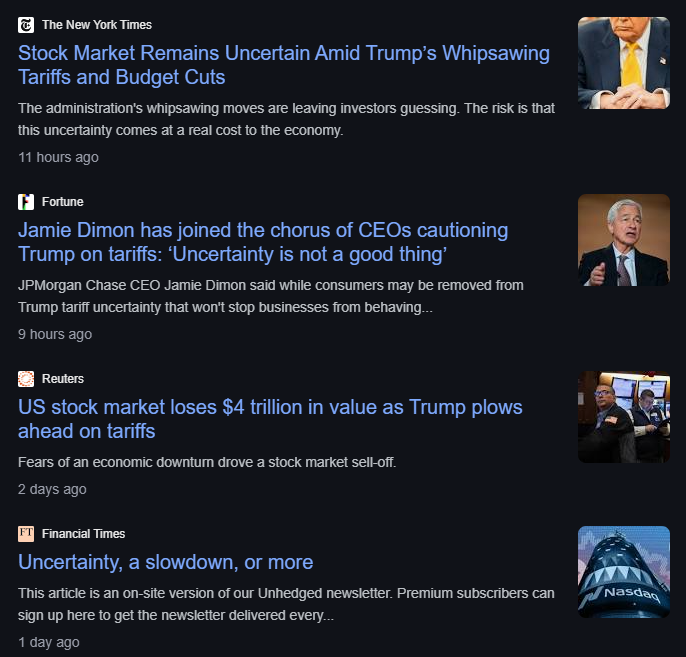Wars, Revolutions, Markets…and Opportunities
As I read through the most recent two editions of the Wall Street Journal , I was surprised at how much of what I was reading was actually meaningful, if you know what I mean. Long-time followers of mine know how often I tell you guys to look past the headlines and/or just outright handwringing economic news. Let’s run through some WSJ headlines from Friday, Saturday and Sunday and add some commentary and mix in a little analysis and see what comes out.
The Old U.S. Trade War With Japan Looms Over Today’s Dispute With China
The article mentions that “Japan plunged into two decades of stagnation. Banks went bankrupt under the weight of bad loans, and prices started falling. Personal-computer software and chips based on the Tron technology proved no match for Microsoft Corp.’s Windows and Intel Corp.’sprocessors as a global standard. The Japanese bureaucrats pushing it watched helplessly as giants such as Google and Amazon were born on the West Coast. By the turn of the century, Japan had ceased to be a top trade issue for the U.S. It was no longer worth arguing about.”
I don’t know if most people remember that when the French government wanted to create a competitor to Google 10 years ago, they funded a company called Quaero. Google’s stock actually went down on the news for a few days. I remember explaining at the time that it was absolutely silly to think that a EU-controlled, French government-funded bureaucracy of a start up, no matter how well-funded, would never be able to compete with the cutthroat innovation of profit-driven companies like Google. This WSJ article cites the fact that Japan’s bureaucratic, government-funded approach was no match for the “power of US innovation.” I will say the same thing about China’s government-funded corrupt tech companies’ chances of dominating AI, Driverless, 5G and other future Revolutionary Technologies — China’s chances are next to nil.
That said, China is a lot more outright militarily adversarial than Japan was back in the 1980s when we were providing their military security…
Chinese Hackers Breach U.S. Navy Contractors
The stuff China is stealing ain’t no joke either. “The data allegedly stolen from Navy contractors and subcontractors often is highly sensitive, classified information about advanced military technology, according to U.S. officials and security researchers. The victims have included large contractors as well as small ones, some of which are seen as lacking the resources to invest in securing their networks. One major breach of a Navy contractor, reported in June, involved the theft of secret plans to build a supersonic anti-ship missile planned for use by American submarines, according to officials.”
Are we at war with China? Yes, as I keep underscoring with my phrase “The Great Trade War of the 21st Century,” see? Wars between developed powers in the 21st century aren’t about bombs. They are about financial and cyber warfare. This anecdote from this weekend’s NYTimes expose on McKinsey’s work with authoritarian governments mentions this tidbit: “China Communications, which was barred for eight years from doing business on some World Bank projects because of a corruption scandal, played a leading role in building artificial islands in the South China Sea that have raised tensions with the United States. The company’s subsidiary also built a new port for Sri Lanka. But the debt turned out to be such a burden that the Sri Lankan government had to give up the port and hand it over for 99 years — to China.” And remember how people of Greece and Italy have had to give up ports and other national assets to the EU/Germany in the last decade?
At Gathering of Spy Chiefs, U.S., Allies Agreed to Contain Huawei
There are some subtle battles being fought in the Great Wars of the 21st Century, aren’t there?
France Probes Any Moscow Role in Yellow-Vest Movement
The article says that “New Knowledge, an Austin, Texas-based cybersecurity firm, said it identified several hundred accounts on Twitter and Facebook it says are very likely controlled by Moscow and are active in the movement.” I’m telling you there’s some weird ways that wars are being fought between developed countries these days. And while we’re on the topic of Facebook…
Facebook Bug Potentially Exposed Unshared Photos of Up 6.8 Million Users
What am I going to do with my FB stock that we’ve owned since we made it a Top 3 position in the portfolio when it was at $20 a share? I don’t know. It weighs on me. I maybe overanalyzing it?
The Amazon HQ2 Fiasco Was No Outlier
How many times I’ve explained that as long as these kinds of policies dominate our political world, it’s likely that the Bubble-Blowing Bull Market will continue? Of course the other point I always make is one that the article explains too: “There’s little evidence that the economic-development incentives offered by cities and states work—except for letting politicians crow.” Is it possible that there’s finally a real backlash against these kinds of endless corporate handout? Probably not, but it’s yet another risk to factor into our analysis.
Conservative Magazine Weekly Standard to Close After 23-Year Run
While I’m reading the WSJ, I never let myself forget that they are now owned by the same folks that I used to work for at Fox News. There are always angles to be aware of.
Companies Ramp Up Stock Buybacks as Market Swoon Continues
I don’t like share buybacks as you guys all know. I’d rather the company send me dividends or keep the cash on their balance sheet or invest in their company. I don’t want CFOs trading stocks against hedge fund managers, you see? And I sure as heck don’t like share buybacks when stock valuations are stretched like they haven’t been in years.
The Unintended Consequences of Animal Gene Editing
Oh man, the article includes this kind of cringe-worthy stuff, “Unintended effects have included enlarged rabbit tongues and extra pig vertebrae, as bioethicists warn of hubris.” I’ve been studying CRISPR and other perhaps promising technologies in hopes that we might soon be living in a Genetics Revolution. But I’m increasingly concerned about ethical and unintended consequences and a plethora of other issues in the industry at this nascent stage.
GE Powered the American Century—Then It Burned Out
With the WSJ dedicated a whole section to the demise of GE, is it actually a good time to start buying GE? Seems probable in a contrarian-headline kind of way.
Bitcoin Wasn’t a Bubble Until It Was
The article quotes George Soros’ Reflexivity and the Long Island Iced Tea/Blockchain penny stock scam. Long-term subscribers won’t hardly believe how they’ve already read everything this article recaps — but we were doing it in real-time, not writing a story about it after the fact.
——–
There are cross-currents galore out there. There are geopolitical events to analyze — and to use to our advantage. I have a spreadsheet I’ve been building that tracks every Investment/Regulatory/Policy/Institutional Issue I’ve analyzed in the last year, including all kinds of factors from whether these Issues are potentially systemic risks and how they will impact any sectors that I invest in.
I added a few more to the list this weekend and I just outlined some of them for you.
All the meanwhile, as always, here in the US, there are are Revolutionary companies just about to take off and change the world. There are fraudulent hype stories that are just about to crash. And there are opportunities galore out there.
I’m on it.




